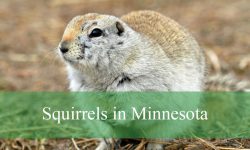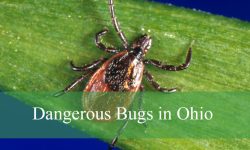Bugs infiltrating our homes can become a significant nuisance if left unaddressed. Among the most troublesome are the minuscule black bugs that bear a striking resemblance to poppy seeds, stealthily infiltrating kitchens and bedrooms, often eluding easy detection.
Their inconspicuous appearance makes it challenging to identify and eliminate them effectively. In homes where cleanliness is paramount, these bugs can still find their way, exploiting the smallest of openings to establish their presence.
Addressing this issue requires a vigilant eye and proactive measures. Regular inspection and cleaning routines can aid in the early detection of these bugs, preventing them from proliferating in the hidden corners of our living spaces. Furthermore, understanding that bugs resembling poppy seeds may vary in species and characteristics is crucial for implementing targeted extermination methods.
Different Types of Tiny Black Bugs that Look Like Poppy Seeds
Black Weevils
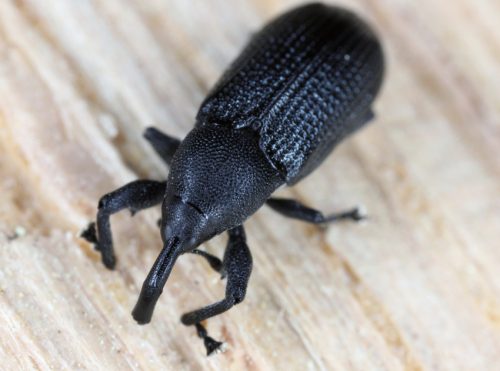
Black Weevils are pests that might show up in the kitchen as little black bugs that resemble poppy seeds. To stop the spread of infestations, discard contaminated grains and keep dry items in airtight containers. It is imperative to store food properly to stave off these weevils.
Black Oriental Cockroaches
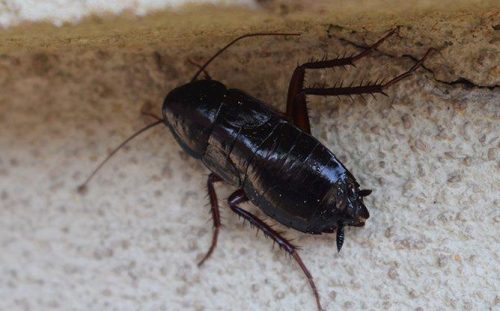
Often found in damp, gloomy places, Black Oriental Cockroaches might be mistaken for insects that resemble black sesame seeds. Shut down access points and keep the area dry to combat them. The secret to stopping their infection is to reduce dampness.
Carpet Beetles
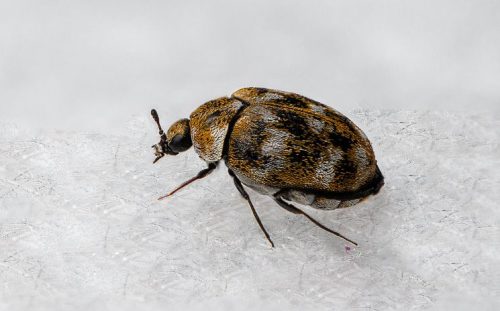
Carpet Beetles are tiny, spherical insects that have a size and form similar to poppies. These microscopic black insects are well known for destroying clothes, upholstery, and carpets. Their larvae can cause unsightly holes and damage because they feed on natural fibers like silk and wool.
Because they are drawn to light, adult carpet beetles are frequently found close to windows. Infestations can be avoided with routine vacuuming and careful textile storage.
Booklice
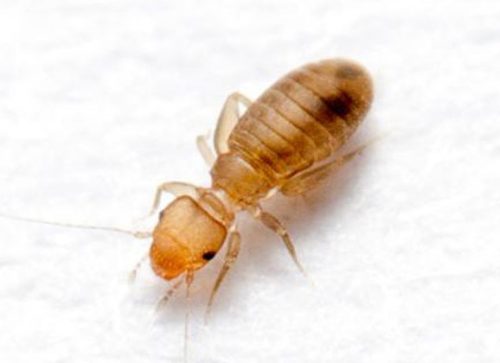
Contrary to what their name suggests, Booklice are tiny insects that resemble poppy seeds rather than lice. They are typically found in moist, humid spaces like bookshelves, wallpaper, and refrigerated food items.
These bugs are a problem in houses with high humidity levels because they feed on starchy materials, mold, and fungus. Infestations of booklice can be managed with the use of adequate ventilation and dehumidification.
Bird Mites
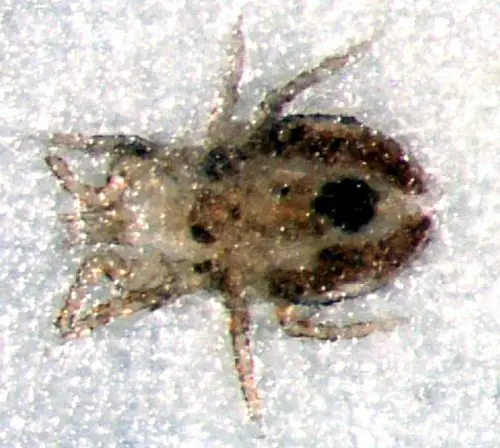
Bird Mites are small black insects that mimic the seeds of poppies. They are frequently connected to bird nests, and when birds leave their nests, infestations may happen. Humans are susceptible to bird mite bites, which can irritate and hurt the skin.
In order to effectively eradicate bird mites, it is imperative to eliminate the nest, which is the cause of infestation. For more information, consider hiring a pest management expert.
Mold Mites
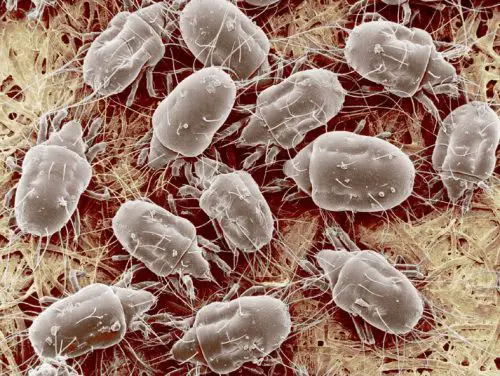
Tiny insects called Mold Mites are about the size of poppy seeds. They are usually seen in regions where mold is growing, as their name suggests. When mold infestations happen indoors, these small black bugs, which resemble poppy seeds, can become a nuisance because they feed on mold spores.
It’s critical to address the underlying mold problem by cleaning and eliminating the mold and increasing ventilation to lower humidity in order to get rid of mold mites.
Poppyseed Weevils
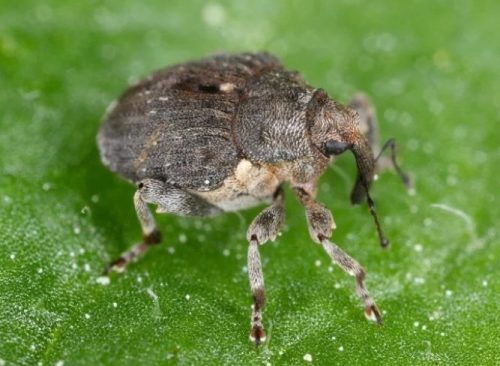
Poppyseed Weevils are tiny insects that resemble longer poppy seeds. These pests have the ability to contaminate and ruin grains that have been stored, especially poppy seeds. The larvae eat the poppy seeds after they lay their eggs inside of them, turning them into inedible pellets.
Grain should be kept in sealed containers and should be routinely inspected for indications of damage to avoid poppyseed weevil infestations.
American Spider Beetles
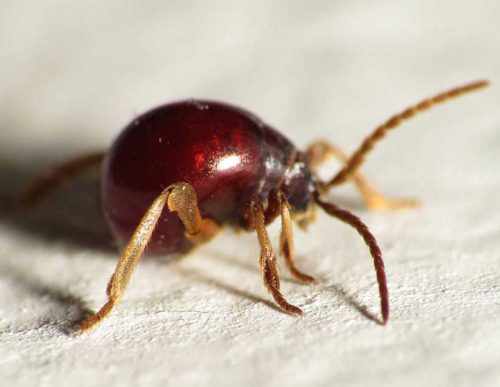
Due of their brown color, American Spider Beetles can be confused with pantry-finding flax seed-like insects. Get rid of any food that has been infected and keep things tidy. Inspection of the pantry on a regular basis might help detect infestations before they spread.
Fungus Gnats
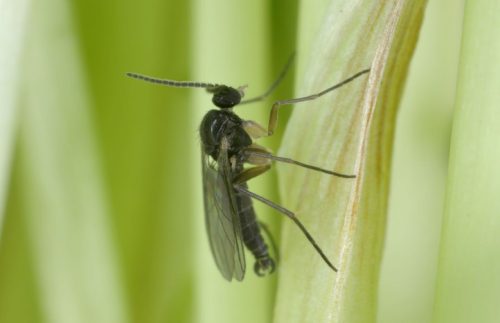
Fungus Gnats are tiny flying insects that are frequently discovered near houseplants. Their larvae mimic seed-like bug eggs. Use sticky traps and reduce soil moisture to keep them under control. Fungus gnat infestations can be avoided by adhering to recommended plant maintenance procedures.
Fleas
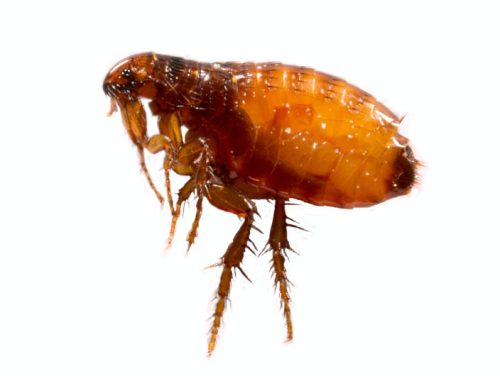
In addition to being infamous for their unpleasant bites, Fleas can occasionally be mistaken for tiny black bugs in beds that resemble poppy seeds. Use the right solutions to cure your pets’ surroundings and get rid of fleas. For effective flea management, regular pet care and thorough cleaning are necessary.
Moss Mites
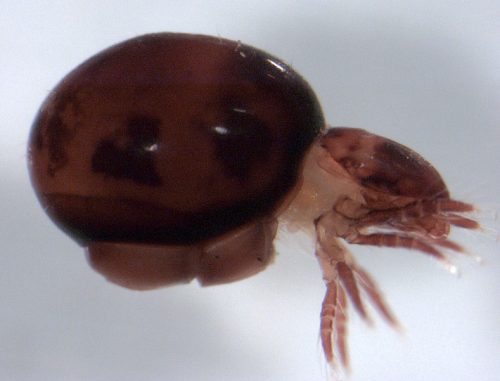
Moss Mites are microscopic pests that can invade your plants and resemble sunflower seed-like bugs. To control them, uphold better garden hygiene and take into account natural predators. Maintaining a healthy ecology might aid in controlling these mites.
Ticks
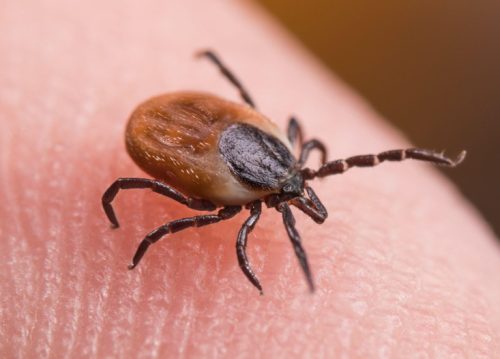
Ticks are tiny parasites that resemble flax seeds and are frequently found on animals and in tall grass. Apply repellant and examine your body and pets after outdoor activity to avoid tick bites. To prevent tick-related infections, prevention and awareness are essential.
Flea Beetles
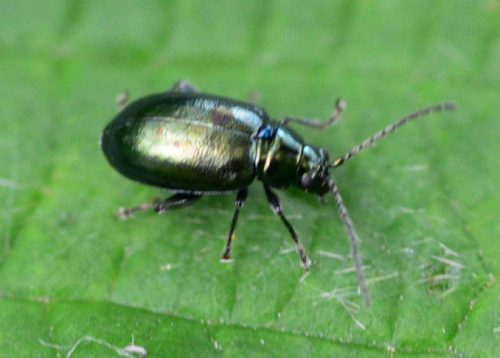
The size of a Flea Beetle is around 1/10,000 of an inch. Because of their jumping habit, flea beetles can be mistaken for little black bugs in the garden that resemble poppy seeds. Use row coverings or insecticides to keep them under control. You can prevent them from damaging your garden by protecting it early in the season.
Spider Mites
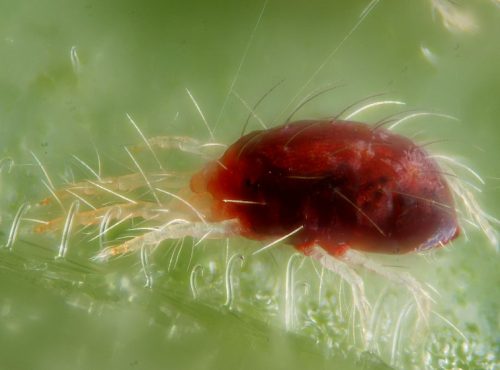
Spider Mites are microscopic pests that can give your plants the appearance of being covered in brown, seed-like insects. To combat their infestation, apply a miticide and raise the humidity. Large-scale plant damage can be avoided with prompt action and a regulated atmosphere.
Black Aphids
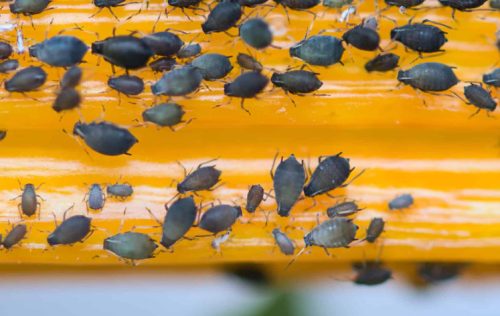
Pests called Black Aphids resemble bugs that resemble black sesame seeds and gather in clusters on plant leaves. To keep their numbers under control on your plants, apply neem oil or insecticidal soap. You can manage these bothersome insects in your garden by doing routine maintenance and inspections.
Drugstore Beetles
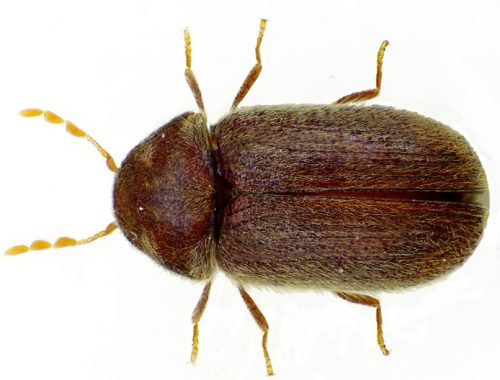
Often found in kitchens and pantries, Drugstore Beetles are brown, seed-like insects that contaminate food items that have been kept in storage. Get rid of them by throwing out tainted goods and maintaining a dry, clean pantry. To stop them from returning, food must be stored properly, and access spots must be sealed.
Bed Bugs
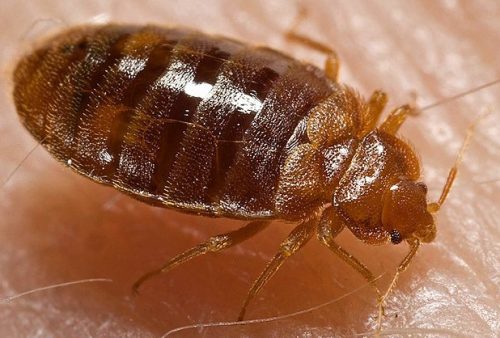
Due of their small size, Bed Bugs are frequently confused with tiny black insects that resemble poppy seeds. They lurk in the cracks in furniture and bedding, coming out at night to eat blood. Wash and vacuum bedding frequently, and think about hiring a pest control company to get rid of them. Being watchful is essential since a partial infection might be avoided with early identification.





